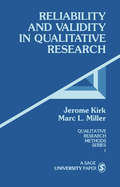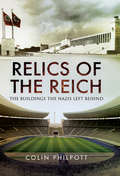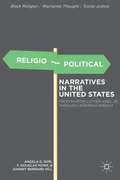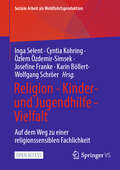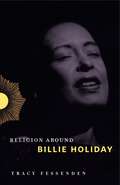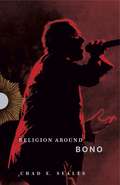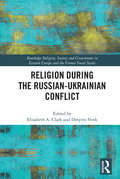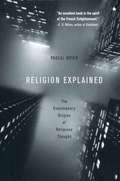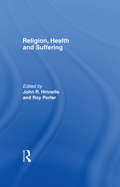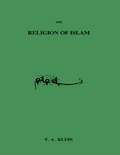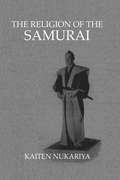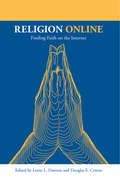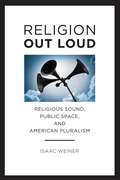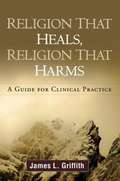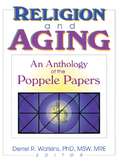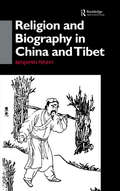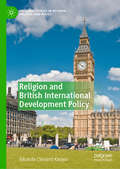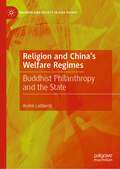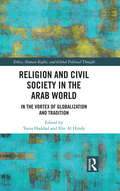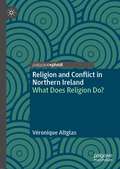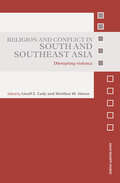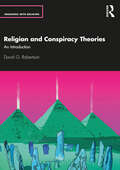- Table View
- List View
Reliability and Validity in Qualitative Research
by Dr Jerome Kirk Marc L. MillerKirk and Miller define what is -- and what is not -- qualitative research. They suggest that the use of numbers in the process of recording and analyzing observations is less important than that the research should involve sustained interaction with the people being studied, in their own language and on their own turf. Following a chapter on objectivity, the authors discuss the role of reliability and validity and the problems that arise when these issues are neglected. They present a paradigm for the qualitative research process that makes it possible to pursue validity without neglecting reliability.
Relics of the Reich: The Buildings the Nazis Left Behind
by Colin PhilpottThe author of Secret Wartime Britain examines the architecture left behind after the Nazis were defeated in World War II. Hitler&’s Reich may have been defeated in 1945, but many buildings, military installations, and other sites remained. At the end of the war, some were obliterated by the victorious Allies, but others survived. For almost fifty years, these were left crumbling and ignored with post-war and divided Germany unsure what to do with them, often fearful that they might become shrines for neo-Nazis. Since the early 1990s, Germans have come to terms with these iconic sites and their uncomfortable part. Some sites are even listed buildings.Relics of the Reich visits many of the buildings and structures built or adapted by the Nazis and looks at what has happened since 1945 to uncover what it tells us about Germany&’s attitude to Nazism now. It also acts as a commemoration of mankind&’s deliverance from a dark decade and serves as renewal of our commitment to ensure history does not repeat itself.
Religio-Political Narratives in the United States
by Angela D. Sims F. Douglas Powe Jr. Johnny Bernard HillThe authors select sermons by Martin Luther King Jr. and Jeremiah Wright to as a framework to examine the meaning of God in America as part of the formational religio-political narrative of the country.
Religion - Kinder- und Jugendhilfe - Vielfalt: Auf dem Weg zu einer religionssensiblen Fachlichkeit (Soziale Arbeit als Wohlfahrtsproduktion #31)
by Karin Böllert Wolfgang Schröer Inga Selent Cynthia Kohring Özlem Özdemir-Şimşek Josefine FrankeDieses Open-Access-Buch rückt die Bedeutung von Religion(en) für die Praxis und die Theorie der Kinder- und Jugendhilfe in den Mittelpunkt und fragt danach, was eine religionssensible Fachlichkeit in der Sozialen Arbeit sein kann. Ein besonderes Augenmerk wird dabei auf die Positionen der jungen Menschen selbst gelegt. Zudem werden die empirischen Ergebnisse des Forschungsprojekts VielfaltNRW dargestellt und das Verhältnis von Religion und Sozialer Arbeit aus unterschiedlichen Perspektiven diskutiert.
Religion Around Billie Holiday (Religion Around #3)
by Tracy FessendenSoulful jazz singer Billie Holiday is remembered today for her unique sound, troubled personal history, and a catalogue that includes such resonant songs as "Strange Fruit" and "God Bless the Child." Holiday and her music were also strongly shaped by religion, often in surprising ways. Religion Around Billie Holiday examines the spiritual and religious forces that left their mark on the performer during her short but influential life.Mixing elements of biography with the history of race and American music, Tracy Fessenden explores the multiple religious influences on Holiday’s life and sound, including her time spent as a child in a Baltimore convent, the echoes of black Southern churches in the blues she encountered in brothels, the secular riffs on ancestral faith in the poetry of the Harlem Renaissance, and the Jewish songwriting culture of Tin Pan Alley. Fessenden looks at the vernacular devotions scholars call lived religion—the Catholicism of the streets, the Jewishness of the stage, the Pentecostalism of the roadhouse or the concert arena—alongside more formal religious articulations in institutions, doctrine, and ritual performance.Insightful and compelling, Fessenden’s study brings unexpected materials and archival voices to bear on the shaping of Billie Holiday’s exquisite craft and indelible persona. Religion Around Billie Holiday illuminates the power and durability of religion in the making of an American musical icon.
Religion Around Billie Holiday (Religion Around)
by Tracy FessendenSoulful jazz singer Billie Holiday is remembered today for her unique sound, troubled personal history, and a catalogue that includes such resonant songs as “Strange Fruit” and “God Bless the Child.” Holiday and her music were also strongly shaped by religion, often in surprising ways. Religion Around Billie Holiday examines the spiritual and religious forces that left their mark on the performer during her short but influential life.Mixing elements of biography with the history of race and American music, Tracy Fessenden explores the multiple religious influences on Holiday’s life and sound, including her time spent as a child in a Baltimore convent, the echoes of black Southern churches in the blues she encountered in brothels, the secular riffs on ancestral faith in the poetry of the Harlem Renaissance, and the Jewish songwriting culture of Tin Pan Alley. Fessenden looks at the vernacular devotions scholars call lived religion—the Catholicism of the streets, the Jewishness of the stage, the Pentecostalism of the roadhouse or the concert arena—alongside more formal religious articulations in institutions, doctrine, and ritual performance.Insightful and compelling, Fessenden’s study brings unexpected materials and archival voices to bear on the shaping of Billie Holiday’s exquisite craft and indelible persona. Religion Around Billie Holiday illuminates the power and durability of religion in the making of an American musical icon.
Religion Around Bono: Evangelical Enchantment and Neoliberal Capitalism (Religion Around #7)
by Chad E. SealesFor many, U2’s Bono is an icon of both evangelical spirituality and secular moral activism. In this book, Chad E. Seales examines the religious and spiritual culture that has built up around the rock star over the course of his career and considers how Bono engages with that religion in his music and in his activism.Looking at Bono and his work within a wider critique of white American evangelicalism, Seales traces Bono’s career, from his background in religious groups in the 1970s to his rise to stardom in the 1980s and his relationship with political and economic figures, such as Jeffrey Sachs, Bill Clinton, and Jesse Helms. In doing so, Seales shows us a different Bono, one who uses the spiritual meaning of church tradition to advocate for the promise that free markets and for-profits will bring justice and freedom to the world’s poor. Engaging with scholarship in popular culture, music, religious studies, race, and economic development, Seales makes the compelling case that neoliberal capitalism is a religion and that Bono is its best-known celebrity revivalist.Engagingly written and bitingly critical, Religion Around Bono promises to transform our understanding of the rock star’s career and advocacy. Those interested in the intersection of rock music, religion, and activism will find Seales’s study provocative and enlightening.
Religion Around Bono: Evangelical Enchantment and Neoliberal Capitalism (Religion Around)
by Chad E. SealesFor many, U2’s Bono is an icon of both evangelical spirituality and secular moral activism. In this book, Chad E. Seales examines the religious and spiritual culture that has built up around the rock star over the course of his career and considers how Bono engages with that religion in his music and in his activism.Looking at Bono and his work within a wider critique of white American evangelicalism, Seales traces Bono’s career, from his background in religious groups in the 1970s to his rise to stardom in the 1980s and his relationship with political and economic figures, such as Jeffrey Sachs, Bill Clinton, and Jesse Helms. In doing so, Seales shows us a different Bono, one who uses the spiritual meaning of church tradition to advocate for the promise that free markets and for-profits will bring justice and freedom to the world’s poor. Engaging with scholarship in popular culture, music, religious studies, race, and economic development, Seales makes the compelling case that neoliberal capitalism is a religion and that Bono is its best-known celebrity revivalist.Engagingly written and bitingly critical, Religion Around Bono promises to transform our understanding of the rock star’s career and advocacy. Those interested in the intersection of rock music, religion, and activism will find Seales’s study provocative and enlightening.
Religion During the Russian Ukrainian Conflict (Routledge Religion, Society and Government in Eastern Europe and the Former Soviet States)
by Elizabeth A. Clark; Dmytro VovkThis book investigates how the military conflict between Russia and Ukraine has affected the religious situation in these countries. It considers threats to and violations of religious freedom, including those arising in annexed Crimea and in the eastern part of Ukraine, where fighting between Ukrainian government forces and separatist paramilitary groups backed and controlled by Russia is still going on, as well as in Russia and Ukraine more generally. It also assesses the impact of the conflict on church-state relations and national religion policy in each country and explores the role religion has played in the military conflict and the ideology surrounding it, focusing especially on the role of the Ukrainian and Russian Orthodox churches, as well as on the consequences for inter-church relations and dialogue.
Religion Explained: The Evolutionary Origins of Religious Thought
by Pascal BoyerMany of our questions about religion, says renowned anthropologist Pascal Boyer, are no longer mysteries. We are beginning to know how to answer questions such as "Why do people have religion?" Using findings from anthropology, cognitive science, linguistics, and evolutionary biology, Religion Explained shows how this aspect of human consciousness is increasingly admissible to coherent, naturalistic explanation. This brilliant and controversial book gives readers the first scientific explanation for what religious feeling is really about, what it consists of, and where it comes from.
Religion Health & Suffering
by PorterFirst Published in 1999. Routledge is an imprint of Taylor & Francis, an informa company.
Religion Of Islam
by A F KleinPublished in the year 2004, Religion Of Islam is a valuable contribution to the field of Middle Eastern Studies.
Religion Of The Ancient Celts (Mobi Classics Ser.)
by J. A. MaccullochFirst published in 2005. Routledge is an imprint of Taylor & Francis, an informa company.
Religion Of The Samurai: A Study Of Zen Philosophy And Discipline In China And Japan (Oriental Ser.)
by NukariyaFirst published in 2005. Routledge is an imprint of Taylor & Francis, an informa company.
Religion Online: Finding Faith on the Internet
by Douglas E. Cowan Lorne L. DawsonReligion Online provides an accessible and comprehensive introduction to this burgeoning new religious reality, from cyberpilgrimages to neo-pagan chatroom communities. A substantial introduction by the editors presenting the main themes and issues is followed by sixteen chapters addressing core issues of concern such as youth, religion and the internet, new religious movements and recruitment, propaganda and the countercult, and religious tradition and innovation.
Religion Out Loud: Religious Sound, Public Space, and American Pluralism (North American Religions #14)
by Isaac WeinerFor six months in 2004, controversy raged in Hamtramck, Michigan, as residents debated a proposed amendment that would exempt the adhan, or Islamic call to prayer, from the city’s anti-noise ordinance. The call to prayer functioned as a flashpoint in disputes about the integration of Muslims into this historically Polish-Catholic community. No one openly contested Muslims’ right to worship in their mosques, but many neighbors framed their resistance around what they regarded as the inappropriate public pronouncement of Islamic presence, an announcement that audibly intruded upon their public space.Throughout U.S. history, complaints about religion as noise have proven useful both for restraining religious dissent and for circumscribing religion’s boundaries more generally. At the same time, religious individuals and groups rarely have kept quiet. They have insisted on their right to practice religion out loud, implicitly advancing alternative understandings of religion and its place in the modern world.In Religion Out Loud, Isaac Weiner takes such sonic disputes seriously. Weaving the story of religious “noise” through multiple historical eras and diverse religious communities, he convincingly demonstrates that religious pluralism has never been solely a matter of competing values, truth claims, or moral doctrines, but of different styles of public practice, of fundamentally different ways of using body and space—and that these differences ultimately have expressed very different conceptions of religion itself. Weiner’s innovative work encourages scholars to pay much greater attention to the publicly contested sensory cultures of American religious life.
Religion That Heals, Religion That Harms
by James GriffithFrom James L. Griffith, well known for his work on harnessing the healing potential of religion and spirituality, this book helps clinicians to intervene effectively in situations where religion is causing harm. Vivid examples illustrate how religious beliefs and practices may propel suicide, violence, self-neglect, or undue suffering in the face of medical or emotional challenges. Griffith also unravels the links between psychiatric illness and distorted religious experience. He demonstrates empathic, respectful ways to interview patients who disdain contact with mental health professionals, yet whose religious lives put themselves or others at risk. The book incorporates cutting-edge research on the psychology of religion and social neuroscience.
Religion and Aging: An Anthology of the Poppele Papers
by Derrell R. WatkinsFind solace and wise counsel in these classics of spiritual gerontology!In these days, when so many people live beyond the Biblical threescore and ten, the spiritual questing and questioning of the aged demands a meaningful response from clergy, family members, and nursing home staff. The essays and research studies reprinted in Religion and Aging: An Anthology of the Poppele Papers investigate the role of faith in older people's lives. Many of these classic studies have been updated with new information.These essays were originally published in the Quarterly Papers on Religion and Aging. This renowned journal was issued from 1984 to 1994 by the Poppele Center for Health and Welfare Studies at the Saint Paul School of Theology in Kansas City, Missouri. The issues of spiritual gerontology discussed in that journal are still powerfully relevant today. Because back issues of the journal are not widely available, the cream of its ten-year history is being reissued in permanent form.Religion and Aging offers unfailing wisdom and insight in a broad range of issues, including: training clergy to be more responsive to the needs of older people a historical perspective on the meaning of ”honoring thy father and mother” in first-century Judaism and Christianity the Psalms as a way to help nursing home residents deal with pain, loneliness, anger, and other difficult emotions original research into belief patterns of older Americans ways to give meaning to suffering suggested by the lives and works of Viktor Frankl, Martin Gray, and Rabbi Harold Kushner techniques of communicating with older people Religion and Aging is an invaluable resource to anyone who works with old people, whether in adult day-care programs, nursing homes, hospitals, or other senior citizens’groups. It will help chaplains, pastors, rabbis, and other clergy minister more effectively to the older members of their flock.
Religion and Biography in China and Tibet
by Benjamin PennyThe Chinese and Tibetan traditions value biography as a primary historiographical and literary genre. This volume analyses biographies as texts, taking seriously the literary turn in historical and religious studies and applying some of its insights to an understudied but central corpus of material in Chinese and Tibetan religion.
Religion and British International Development Policy (Palgrave Studies in Religion, Politics, and Policy)
by Aikande Clement KwayuThis book studies the relationship between British government and faith groups in its international development agenda within and beyond the context of Brexit. It includes aspects of International Relations, International Development, and Religion and Politics to trace the relationship between the British government and faith groups, showing that the relationship is enhanced on three conditions: (i) the resurgence of religion in international affairs; (ii) the attitudes of politicians and political parties towards the third sector (i.e. voluntary and private sectors); and (iii) the rising prominence of the international development agenda in British politics. The third condition triggers the need to understand this relationship in the wake of Brexit. Thus, the book aims to analyze to what extent the increasing prominence of an international development agenda in British politics explains the relationship between the government and faith groups, and ultimately whether Brexit has increased the prominence of international development agenda and brought faith groups into closer relations with the government.
Religion and China's Welfare Regimes: Buddhist Philanthropy and the State (Religion and Society in Asia Pacific)
by André LalibertéThis book presents the welfare regime of China as a liminal space where religious and state authorities struggle for legitimacy as new social forces emerge. It offers a unique analysis of relations between religion and state in the People’s Republic of China by presenting how the Chinese Communist Party (CCP) tries to harness Buddhist resources to assist in the delivery of social services and sheds light on the intermingling of Buddhism and the state since 1949. This book will appeal to academics in social sciences and humanities and broader audiences interested in the social role of religions, charity, NGOs, and in social policy implementation. The author explores why the CCP turns to Buddhist followers and their leaders and presents a detailed view of Buddhist philanthropy, contextualized with an historical overview, a regional comparative perspective, and a review of policy debates. This book contributes to our understanding of secularity in a major non-Western society influenced by religions other than Christianity.
Religion and Civil Society in the Arab World: In the Vortex of Globalization and Tradition (Ethics, Human Rights and Global Political Thought)
by Tania Haddad Elie Al HindyThis book examines the links between civil society, religion and politics in the Middle East and North Africa region. The chapters in the volume explore the role of religion in shaping and changing the public sphere in regions that are developing and/or in conflict. They also discuss how these relations are reflected on civil society organizations and the role they are expected to play in transitional periods. This volume: investigates the conceptual dilemmas regarding what is ‘civil society’ in the Arab world today examines the dynamic roles of civil society organizations and religion in the Middle East and North Africa explores the future of the Arab civil society post-‘Arab Spring’ events, and how the latter continues to reshape the demand for democracy in the region. A comprehensive study of how the Arab civil society has come into being and its changing roles, this eclectic work will be of interest to scholars and researchers of politics, especially political Islam, international relations, Middle East Studies, African Studies, sociology and social anthropology.
Religion and Conflict in Northern Ireland: What Does Religion Do?
by Véronique AltglasNorthern Ireland presents a fundamental challenge for the sociology of religion – how do religious beliefs, attitudes and identities relate to practices, violence and conflict? In other words, what does religion do?These interrogations are at the core of this book. It is the first critical and comprehensive review of the ways in which the social sciences have interpreted religion’s significance in Northern Ireland. In particular, it examines the shortcomings of existing interpretations and, in turn, suggests alternative lines of thinking for more robust and compelling analyses of the role(s) religion might play in Northern Irish culture and politics.Through, and beyond, the case of Northern Ireland, the second objective of this book is to outline a critical agenda for the social study of religion, which has theoretical and methodological underpinnings. Finally, this work engages with epistemological issues which never have been addressed as such in the Northern Irish context: how do conflict settings affect the research undertaken on religion, when religion is an object of political and violent contentions? By analysing the scope for objective and critical thinking in such research context, this critical essay intends to contribute to a sociology of the sociology of religion.
Religion and Conflict in South and Southeast Asia: Disrupting Violence (Asian Security Studies)
by Linell E. Cady Sheldon W. SimonA major new contribution to comparative and multidisciplinary scholarship on the alignment of religion and violence in the contemporary world, with a special focus on South and Southeast Asia. Religion and Conflict in South and Southeast Asia shows how this region is the site of recent and emerging democracies, a high degree of religious pluralism, the largest Muslim populations in the world, and several well-organized terrorist groups, making understanding of the dynamics of religious conflict and violence particularly urgent. By bringing scholars from religious studies, political science, sociology, anthropology and international relations into conversation with each other, this volume brings much needed attention to the role of religion in fostering violence in the region and addresses strategies for its containment or resolution. The dearth of other literature on the intersection of religion, politics and violence in contemporary South and Southeast Asia makes the timing of this book particularly relevant. This book will of great interest to advanced undergraduate and postgraduate students of Asian politics, security studies and conflict studies.
Religion and Conspiracy Theories: An Introduction (Engaging with Religion)
by David G. RobertsonReligion and Conspiracy Theories: An Introduction is the first accessible volume to systematically examine the relationship between religion and conspiracy theories in the contemporary world in critical and historical perspective.It lays out the historical development of these important categories, considers different theoretical approaches and looks at case studies of conspiracy theories in religion, about religion and as religion. It maintains a critical perspective throughout on the relationship between truth and power, and in the process provides a fresh perspective on belief and worldviews in our modern world.Designed for use in the classroom, the book features helpful diagrams and resources for teachers. It is an essential read for all students of religion and conspiracy theories, as well as scholars of politics, religious studies, sociology, anthropology and cultural studies.
